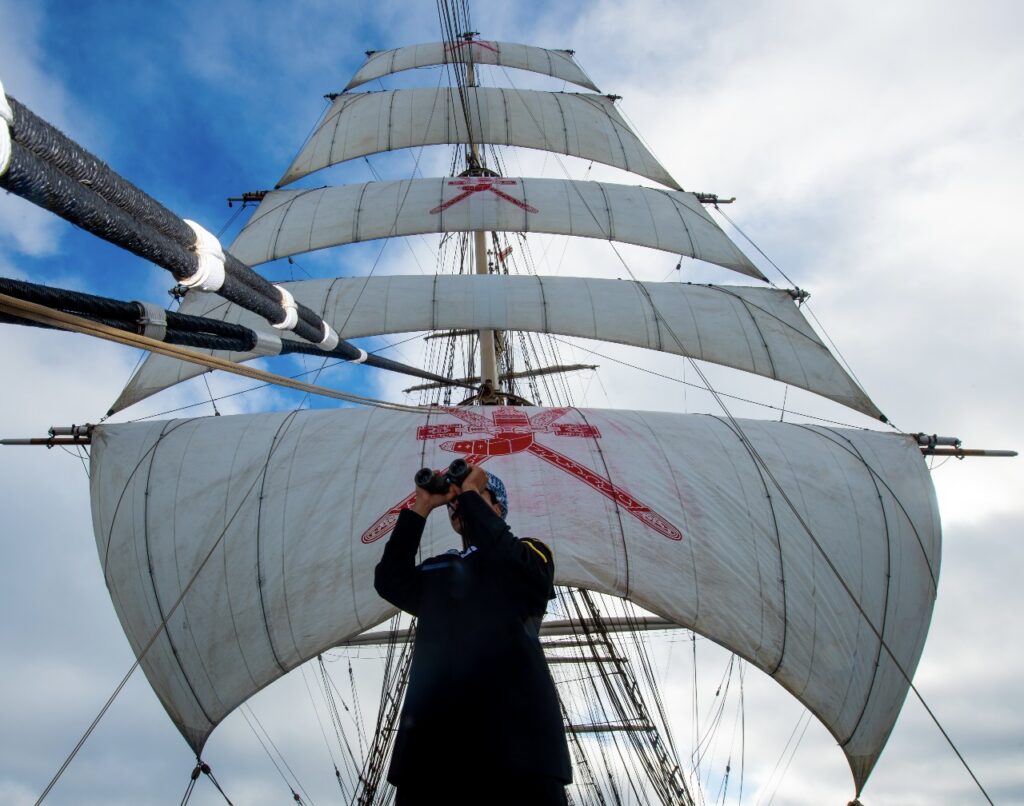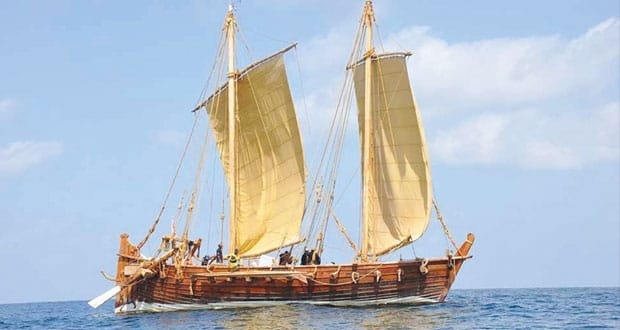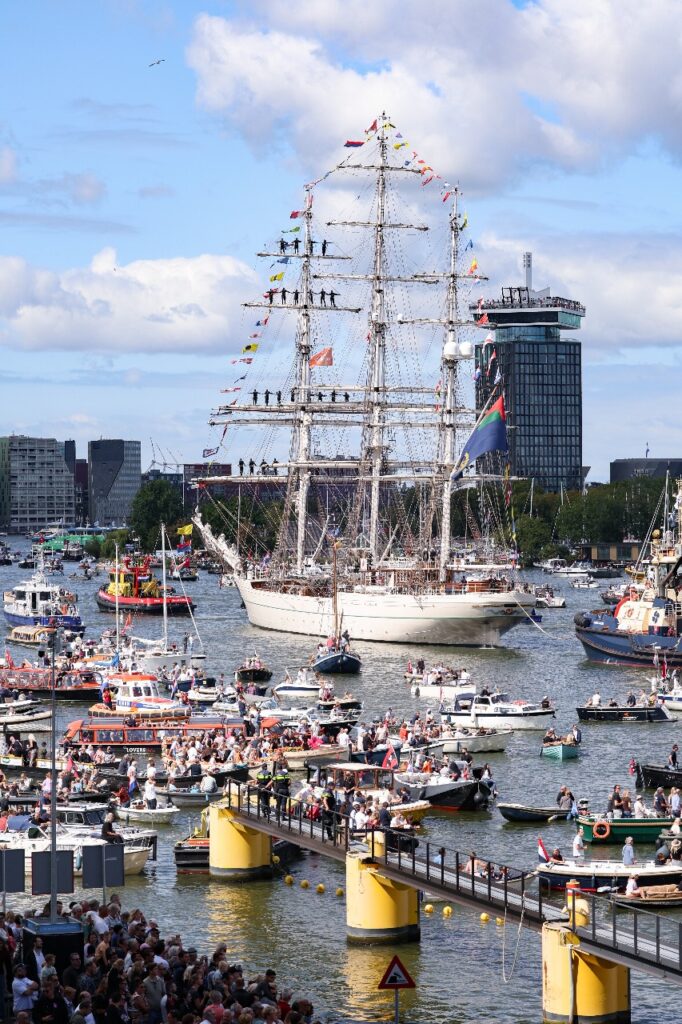MUSCAT – For centuries, Oman served as a vital bridge for communication between civilizations—spreading dialogue, peace, and cooperation among peoples across continents. Through these interactions, the Omani people established a bright and enduring image rooted in humanity, tolerance, and cultural exchange.
Anyone who traces Oman’s maritime legacy can clearly see the imprint of authentic Omani values—honesty, integrity, and generosity—that left lasting impressions across Africa, India, China, and the islands of Southeast Asia. These values strengthened human, religious, and cultural ties, turning Oman’s seafaring past into a timeless source of inspiration for future generations and a testament to the nation’s enduring principles of openness, coexistence, and cooperation.

Read More
- Oman hosts scientific workshop to update Arabian Leopard Conservation Strategy
- Third edition of “Youth Ambassadors 2025” program announced in Muscat
- Oman mandates institutional ownership for artisanal fishing vessels
- International Federation of Journalists slams growing crisis faced by journalists in Pakistan
- 15 arrested in Musandam for attempting to enter Oman illegally


This report explores the defining features of Omani maritime history, highlighting its geographical and symbolic milestones, the key personalities and initiatives that shaped its legacy, and how the Sultanate has skillfully invested this cultural asset to strengthen its contemporary global presence through soft power and cultural diplomacy.
Sheikh Hamoud bin Hamad Al-Ghailani, a researcher in Omani maritime history, told the Oman News Agency that every nation carries a unique culture, and Oman’s has been shaped by its journeys across the seas. He noted that Omani influence was particularly evident in the spread of Islam across East Africa, achieved not through force but through kindness, honesty, and cooperation.
Omani influence reached far beyond Africa. In India, for instance, the Zamorin of Calicut—though Hindu—adopted elements of Muslim attire as a sign of respect for his Omani counterparts. In East Africa, Omani settlers and scholars contributed to the rise of Arabic journalism through newspapers like Al-Najah, Al-Nadi, Al-Falaq, Al-Nahda, Al-Umma, and Al-Islah.
Omanis not only navigated seas but also the frontiers of science and knowledge. Sheikh Al-Ghailani emphasized that Omani seafarers authored significant works on navigation based on empirical experience and observation. Figures such as Ahmed bin Majid, Yazid al-Omani, Ismail bin Ibrahim bin Mirdas (Ismailawi), and Jafar bin Lakis were among those whose writings shaped maritime science. Their work on routes and navigation methods became foundational knowledge adopted by many civilizations with whom the Omanis interacted.
Through these voyages, Omanis spread Islam, knowledge, and culture throughout China, Southeast Asia, India, and East Africa—not by conquest, but through genuine human connection, trustworthiness, and moral conduct.
Oman’s presence in East Africa was exceptional in its depth and influence. During the reign of Sayyid Said bin Sultan, Zanzibar became a beacon of Islamic and Arab culture. Omani merchants, preachers, and scholars such as Khamis bin Juma, Sheikh Abdul Rahman bin Ubaid bin Hamoud, Hamad bin Muhammad Al-Marjabi, and Ubaidullah bin Salem Al-Khadouri played vital roles in spreading Islam and fostering trade and scholarship.
The Omani maritime tradition built not only trade networks but also cultural and diplomatic relationships that connected the civilizations of the Indus Valley, Mesopotamia, Pharaonic Egypt, East Africa, and China. These ties endure today, reflected in Oman’s long-standing diplomatic relations with many nations.
His Excellency Dr. Saleh bin Mohammed Al-Fahdi, Member of the State Council, affirmed that Omani maritime history is a cornerstone of the nation’s soft power. According to him, this history helped shape the values, principles, and outlook of the Omani people.
The ports of Muscat, Sohar, Qalhat, Sur, Sumhuram, and Mirbat served as vital stops for replenishing supplies, trading goods, and offering respite to travelers. These interactions enriched Omani culture through the exchange of ideas, languages, and customs.
Dr. Al-Fahdi noted that the Chinese annals document Omanis as the first Arabs to reach China, specifically the port of Canton (Guangzhou). He emphasized that the Omani people, through their integrity and noble values, have long embodied soft power.
Dr. Badriya bint Mohammed Al-Nabhani, historian and lecturer, highlighted the Jewel of Muscat project as a modern revival of Oman’s maritime legacy. The initiative, inspired by a ninth-century shipwreck discovered in Indonesian waters, was launched in 2006 under the vision of the late Sultan Qaboos bin Said (may his soul rest in peace).
The ship was meticulously reconstructed in traditional Omani style and gifted to Singapore to commemorate the historical trade route between the two nations. Its journey symbolized friendship, cooperation, and shared heritage.
Among Oman’s most celebrated ships, Al-Rahmani stands out as a heroic vessel that helped lift the Persian siege of Basra in 1775 under Imam Ahmed bin Said Al Busaidi. Meanwhile, the legendary Sultana symbolizes the height of Omani maritime diplomacy—sailing to New York in 1839 with a message of friendship from Sultan Said bin Sultan to the President of the United States, led by Omani envoy Ahmed bin Al-Nu’man Al-Ka’bi.
Oman’s maritime legacy is more than a chapter in history; it is a living story that continues to shape the nation’s present and future. It reflects the authenticity of the Omani spirit, the depth of its civilization, and its openness to the world through knowledge and peace, not conquest.
Through sails that reached from East to West, the Omanis carried their values, ethics, and culture, leaving an indelible mark on global civilization. Today, this heritage stands not only as a memory but as a cornerstone of national identity and a source of soft power that enhances Oman’s standing on the international stage.







